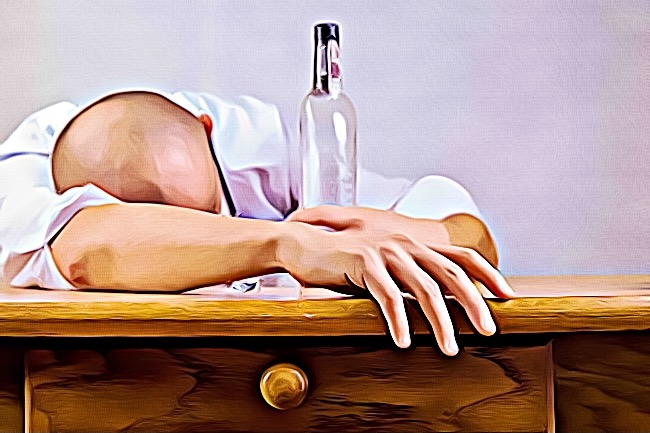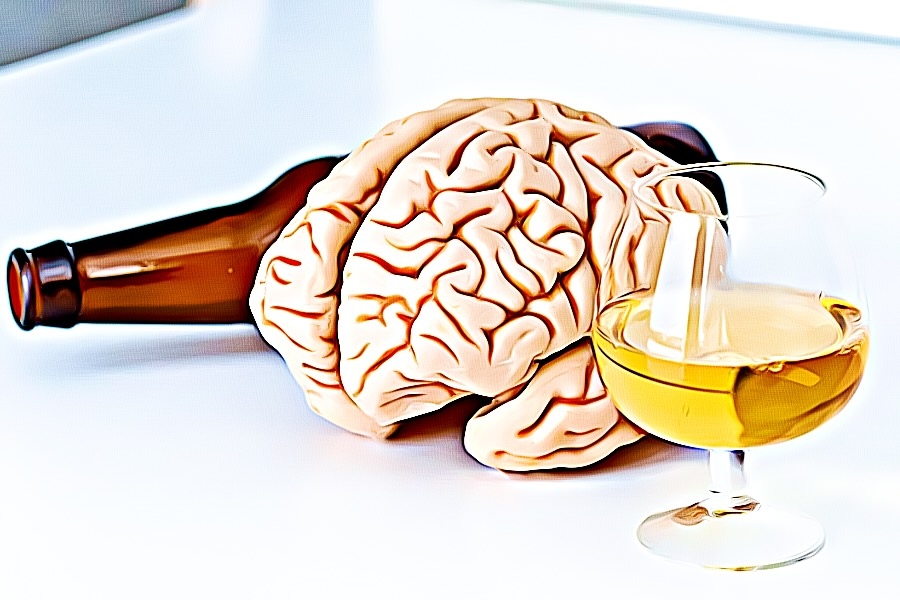Researchers have linked excessive alcohol use to cognitive deficits and mental disorders. With treatment, symptoms can be significantly reduced. However, prolonged alcohol use can still impair memory, reduce learning ability, cause sleep disturbances, and negatively affect coordination. Long-term alcohol abuse can lead to some permanent brain damage.
Alcohol depresses the central nervous system, and heavy or prolonged alcohol use can cause depression of the brain and respiratory problems—leading to death. Alcohol abuse contributes to about 88,000 deaths in the United States each year, according to the Centers for Disease Control and Prevention (CDC). Motor vehicle accidents are one of the top causes of alcohol-related deaths. In addition to that, other causes include falls, drownings, homicide, suicide, burns, and sexual and other violence.
Alcohol also affects many regions of the brain and the rest of the body. When an individual consumes too much alcohol or uses it for an extended period of time, it can be fatal. According to the Columbus Alcohol Research Center, many chronic alcohol abusers develop liver cirrhosis because the liver is so severely damaged.
To live and drink responsibly, it’s essential to understand the many ways that alcohol affects the mind and body. This article will discuss what happens to the brain when we drink alcohol. Here is what you need to know.
The Effects of Alcohol on Your Brain: Short-Term or Social Drinking
When you drink alcohol, it travels through your body and reaches your brain and nervous system within seconds. Once it gets to your brain, it releases chemicals called neurotransmitters. These neurotransmitters react with the receptors on your brain cells and disrupt normal communication between cells. Alcohol affects the neurotransmitters GABA & Glutamate, and it also acts as an antagonist to the NMDA receptor, which normally plays a vital role in learning and memory.
Alcohol is a CNS depressant and slows down brain activity and neurotransmission. It can lead to drowsiness and confusion and affects coordination, vision, and concentration. Alcohol also kills brain cells in the cerebellum, responsible for motor skills. In other words, alcohol is a depressant, and it gets rid of brain chemicals that make us feel good.
Although alcohol is a depressant, it has the opposite effect on your brain and central nervous system. It stimulates certain regions of the brain at low levels, making individuals feel more socially confident and outgoing. In addition, alcohol causes people to feel less alert and enhances relaxation. This can be dangerous if an individual is in a situation where they need to be alert, such as driving a vehicle.
The Effects of Alcohol on Your Brain: Long-Term or Chronic or Binge Drinking
In contrast to the short-term effects of alcohol, long-term abuse of alcohol can lead to several health issues and severe consequences for the body. Over time, alcohol can permanently damage brain structures, leading to life-threatening conditions.
In mid to high doses, alcohol slows down brain activity. Long-term use of large amounts of alcohol can cause permanent damage to brain cells. Alcohol also interferes with the process of making new brain cells, which is called neurogenesis. Not only that, but it also increases the risk of developing an alcohol use disorder (AUD).
People who drink too much alcohol for several years risk developing severe brain damage that could affect their everyday lives. As a result, they may have difficulty performing simple tasks (such as getting dressed, driving a car, or making a simple meal), and they may have problems with memory and communication. Over time, the brain becomes damaged, and it gets harder to recover.
Wet Brain
Wet brain is one of the most severe side effects of chronic alcohol consumption. It typically occurs in older chronic alcoholics who have suffered many years of alcohol-related brain damage. Wet brain is a form of encephalopathy, and it can result in devastating neurological problems, including dementia (memory loss), personality changes, and loss of motor skills.
With wet brain, the cerebrospinal fluid (CSF) levels in the brain are disrupted. The CSF contains vital nutrients for brain health. When alcohol consumption disrupts the ability of the brain to absorb these nutrients, symptoms of wet brain can occur. Cognitive decline is the most noticeable sign of wet brain.
Early Signs of the Effects of Drinking
Untreated alcohol addiction can have a devastating impact on the brain. However, research shows that the more alcohol consumption is reduced, the more the brain recovers.
Early signs of alcohol abuse can occur within days or even hours after the first time a person drinks. These include withdrawal symptoms, impaired judgment, and a craving for alcohol. As the disease progresses, the symptoms become more serious. They can include:
- Memory loss
- Confusion
- Impaired coordination
- Depression
- Mood disorders
- Hallucinations or delusions
- Reduced cognitive function
- Disruption of sleep patterns

How to Stop Drinking Before it Gets Serious
Alcohol abuse and dependence are called alcohol use disorders. For some people, it is genetic. For others, it can be caused by certain life events or just frequent drinking. People who drink heavily or binge drink are more likely to develop an alcohol use disorder. The good news is that there are effective treatments and help available for any who needs it.
The earlier the disease can be detected, the sooner treatment can begin. The best and safest way to treat alcohol addiction is through a detox program followed by a rehabilitation program.
Choosing the right program is crucial to your success. Consider these options:
- Counseling
Many people can benefit from therapy for alcohol abuse or addiction. A therapist can help people learn about their relationship with alcohol and change unhealthy behaviors. There are many different types of counseling, from individual therapy to group sessions. Find out if the programs in your area include psychological counseling.
- Medications
Several medications can help reduce cravings for alcohol, manage withdrawal symptoms and prevent
- Support Groups
If you are trying to recover from alcohol addiction, joining a mutual support group may help. These groups provide support and information to people trying to stop drinking.
- Detox
Detoxification, also known as “detox,” is the process of flushing the body of all the alcohol toxins. An inpatient or residential rehab is the best place to
detoxify. The individual receives medical and psychological support while they go through the process.
The Bottom Line
Alcohol consumption has many effects on the nervous system and the brain. When consumed in large amounts or over a long period of time, alcohol can cause permanent brain damage. This can affect your cognitive abilities, motor skills, and how you can relate to other people. Overall, alcohol is an acceptable part of a healthy balanced lifestyle. It’s a good choice as long as it is consumed in moderation. If you or anyone you know seems to be struggling with the adverse effects of alcohol, do not hesitate to seek help today.

